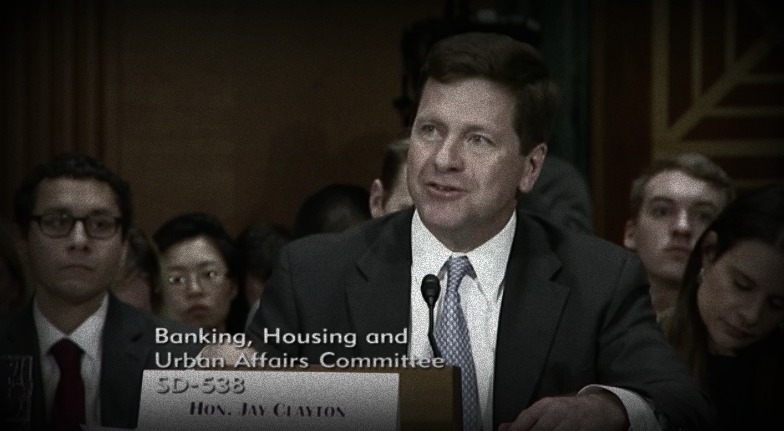In a Congressional hearing about the emerging cryptocurrency market, the chair of the Securities and Exchange Commission said he is most concerned about a conventional problem.
Jay Clayton told the Senate Banking Committee on Tuesday that the SEC is currently understaffed, lacking the examiners needed to keep tabs on all kinds of markets–both newer and traditional ones.
“Personnel is my biggest challenge at the moment,” he said, when questioned by the committee’s vice chair, Sherrod Brown (D-Ohio).
“I could use more people in enforcement. I could use more people in trading and markets,” Clayton added.
Brown had brought up an estimate made last year by Steven Peikin, the SEC co-director of enforcement.
In October, Peikin predicted the division would lose 100 staffers over the next 12 months. The top Democrat on the committee said this would amount to a seven percent workforce reduction.
Though Peikin’s speech also signaled that the SEC would take a more relaxed approach to enforcement, Clayton repeated a call he made last September–to bolster staff numbers and end the White House-imposed hiring freeze.
The SEC Chair also denied that he was “asleep at the switch,” referring to a metaphor made by Brown to describe the agency under the last Republican administration. The global financial meltdown of 2008 happened at the tail end of the George W. Bush administration.
“The gestation period for the cases we bring is roughly 22-24 months,” Clayton said, criticizing a recent analysis that found reduced fines under the Trump administration.
Though the hearing was called for major regulators to give their take on cryptocurrencies, recent stock market activity weighed heavily on the committee.
The previous two trading days saw the Dow Jones Industrial Average drop 1,841 points—or roughly 7 percent of its overall value. Monday’s losses, at 1,175 points, represent the largest nominal single day decline in the history of the index.
Declines to the S&P 500 last week alone indicate that US equities may have depreciated by roughly $1 trillion, according to CNBC. By comparison, the total current market cap for virtual currencies is roughly $365 billion, as Commodity Futures Trading Commission (CFTC) Chair Christopher Giancarlo said at the onset of Tuesday’s hearing.
Though the market for virtual currencies is relatively small at the moment, laws could soon be crafted specifically to regulate it.
“We may be back with our friends from Treasury and the Fed to ask for additional legislation,” Clayton told the committee.
Both Giancarlo and Clayton also said that they believed recent stock market sell-offs weren’t indicative of deeper problems, despite recent skittishness.
“By this morning, there was nothing to indicate that any of our systems didn’t function as they were expected to function yesterday,” Clayton said. The SEC Chair said agency “circuit breakers” that halt abnormal volumes of trading “weren’t hit at any great detail” on Monday.
“I can say that the system held, the system worked as its designed to do,” Giancarlo added.
Like Clayton, the CFTC Chair said his agency could do with more resources for financial technology “and cryptocurrencies, specifically.”








